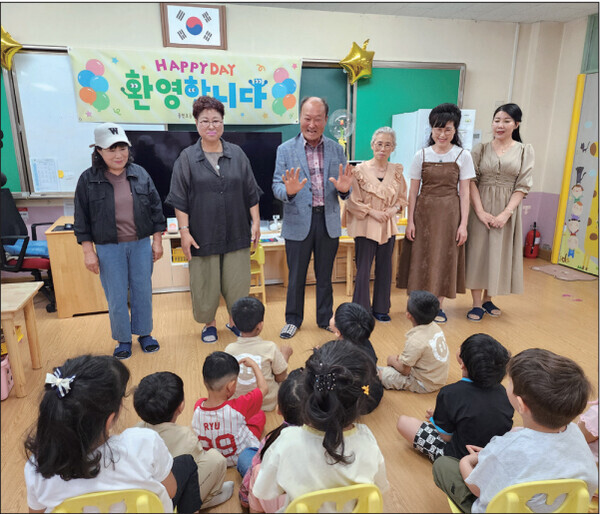
YONGIN, South Korea – The Lee Dong-eup Community Security Council (Chairman Lee Gu-yong), a public-private cooperative body established to enhance social welfare and address local welfare issues, has initiated "Seeds of Hangeul," a Korean language education program aimed at improving basic literacy among children from multicultural families. This initiative, running from June to November, takes place once a week at Yongcheon Elementary School's attached kindergarten, catering to 11 multicultural children.
The program is strategically designed to bolster fundamental literacy skills and foster emotional stability for children who often experience academic difficulties and social alienation due to delayed language acquisition. These challenges are prevalent among multicultural children in South Korea, where a traditionally homogenous society grapples with an increasing influx of diverse populations. Many multicultural students, especially those with mothers who have limited Korean proficiency, often lag behind their peers in language skills, impacting their academic performance and overall school adaptation. Studies indicate that a significant number of multicultural students exhibit lower Korean language proficiency and higher rates of mental health issues, discrimination, and school dropout.
"Seeds of Hangeul" comprises comprehensive basic language education, encompassing understanding Hangeul consonants and vowels, writing words, and constructing sentences. Beyond foundational instruction, the curriculum integrates engaging activities such as book play and activity-centered learning to cultivate expressive abilities and language sensitivity. Crucially, members of the Community Security Council actively participate in the sessions, establishing emotional bonds with the children and thereby enhancing the program's effectiveness.
Chairman Lee Gu-yong underscored the profound sense of alienation multicultural children often experience due to linguistic barriers. "The feeling of exclusion that multicultural children experience because of language issues is very significant," he stated. "Through Hangeul education, we are committed to providing robust support to help these children build confidence and successfully integrate into the local community."
The Lee Dong-eup Community Security Council, like similar organizations across South Korea, plays a vital role in identifying vulnerable populations, discovering and connecting social welfare resources, and establishing community protection systems. Their involvement in this program exemplifies their commitment to addressing specific local needs through tailored initiatives, leveraging both public and private sector collaboration. The educational materials and learning tools required for the program were secured through a public contest for Yongin City's resident-led village welfare support projects. The council plans to analyze the program's efficacy in the future to consider potential expansion. This proactive approach aims to create a more inclusive and supportive environment, ensuring that all children, regardless of their cultural background, have the opportunity to thrive and contribute to society.
[Copyright (c) Global Economic Times. All Rights Reserved.]






























